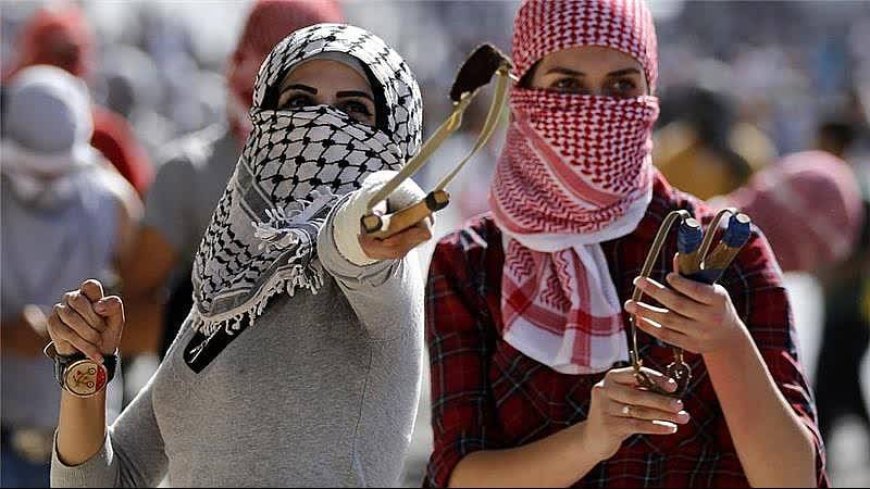Resistance: Palestine's only hope
Resistance: Palestine's only hope

By: M. Ahmadi
After seventy-five bitter years, the official recognition of al-Nakba in the world's greatest forum, the UN, is a significant development that cannot be overlooked. Despite the intense consultations and pressures exerted by the Zionist regime and the United States, the fact that this event has taken place is a testament to the unwavering resistance of the Palestinian people.
The Palestinians' steadfast defiance to the Zionist aggressors has not only weakened the Palestinian resistance but also cast light on the daily massacres of the Zionist regime and brought the truth to the attention of the international community. However, it is important to consider the viability of other alternative strategies beyond armed resistance:
1. Surrendering: As the ancient Romans would say, "Vae victis" a phrase that translates to "woe to the vanquished". The capitulation in the face of oppression speaks for itself. It entails relinquishing one's rights and submitting to the will of the oppressor, hence obeying their dictates. In that particular scenario, how can a people expect sympathy and solidarity from other nations if they do not first demonstrate their desire to fight for their freedom and independence?
2. Making compromises: A compromise occurs when conflicting parties reach a mutual accord by relinquishing their claims. However, this becomes a totally different situation when one party involved is unjust and transgressive. Hence, any agreement reached with such a party would mistakenly provide it with an illegitimate entitlement. In this context, the concept of compromise has the same connotation as capitulation. From all political perspectives, it is evident that the Zionist occupation of Palestinian territories lacked legitimacy. As we earlier noted, compromise is, in this sense, considered a form of surrender. Therefore, since the imperialists have not been able to completely occupy Palestine, they have resorted to the strategy of compromise. In the meantime, regrettably, certain Palestinian politicians have been engaging in a dangerous game by conceding to the Zionist enemy and utterly disregarding the fundamental rights of their fellow countrymen. Such dirty policies are seen as a betrayal of their people and their just cause.
It is a remarkable observation that throughout history, those politicians who indulge in making compromises have only been able to do so due to the hard-won gains of the people's resistance. Without such resistance, their efforts would be futile. As we analyse the situation at hand, it is crucial to acknowledge that engaging in diplomatic talks with the opposing party may not always be a permanent strategy but rather a calculated manoeuvre to strike at the adversary and protect the interests of the people. In other words, making compromises does not necessarily entail making disgraceful concessions.
The defiant Palestinian nation has consistently demonstrated that its response to the second strategy has always been negative. In this regard, Imam Sayyed Ali Khamenei, Iran's Supreme Leader, argues, "The problem with the compromise process is not only that it gives legitimacy to the usurping Zionist regime by ignoring the rights of the Palestinian nation, which is a grave and unforgivable mistake, but also that it has no relation to the current situation of the Palestinian question and does not account for the dark and repressive nature of the Zionist regime.
According to Imam Khamenei, the Palestinian nation has successfully exposed the fallacy of those advocating for political compromise. This has led to a broad consensus among the Palestinians regarding the appropriate strategies for advocating for the rights of the Palestinian people. Based on the statements made, it appears that the second approach (compromise) has catastrophic ramifications as the dynamic between the oppressors and the oppressed gradually fades away. In other words, how can Palestinians convince the rest of the world to heed their voice if they agree with the Zionist oppressors and accord them any illegitimate rights?
As a result, resistance against oppression is the only viable option that can highlight the dynamic between oppressor and victim in the eyes of the world. The act of resistance, which is widely interpreted as an unwillingness to yield or compromise, carries significant implications on a global scale. Ultimately, when the Zionist invaders realise that the Palestinians are not a people of surrender and compromise in the face of systematic persecution, they escalate their crimes, which may expose their atrocities even more. Meanwhile, the Palestinians, who have to submit to humiliation, are actively working to fortify themselves against their adversaries. Their primary objective is to minimise the cost of their resistance against the Zionist occupiers while increasing their military capabilities to counter the aggressors.
Finally, it must be concluded that dignified resistance is the only factor in determining the fate of Palestine, as its realisation will eventually lead to the downfall of Zionist tyranny. According to the leader of the Islamic Revolution, Imam Khamenei, "the only feasible way of overthrowing the occupying Zionist regime is through persistent resistance and struggle."













































